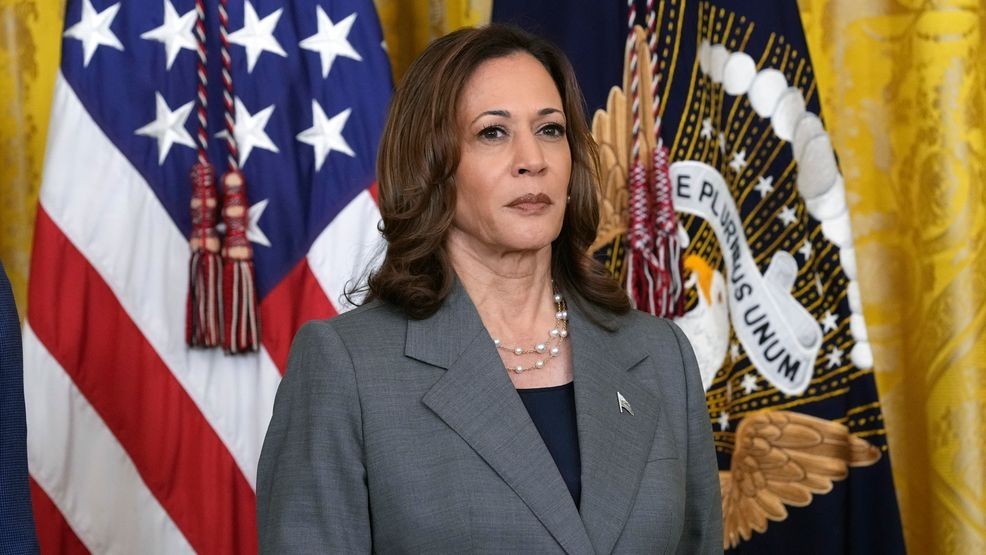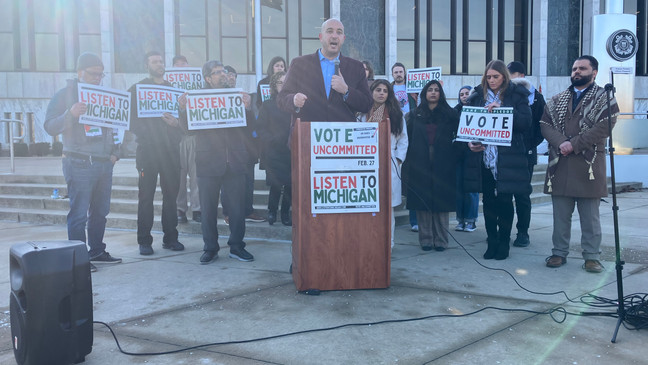New poll shows Harris recouping support among Arab voters
WASHINGTON (TNND) — Vice President Kamala Harris has been able to recover some support among Arab American voters that the Democratic presidential ticket lost in the wake of Oct. 7.
The Arab American Institute (AAI) released polling at the end of October 2023 that showed support among Arab voters for President Joe Biden catastrophically plummeted from a high of 59% during the 2020 election to a scant 17%. His approval rating also dropped a precipitous 45 points, from 74% to 29% in that time frame. While positive feelings towards Biden had been dropping amongst Arabs steadily since he came into office, the AAI noted that his support fell by 18 points between April 2023 and October 23 alone, driven in part by widespread criticism of his administration's muted response to Palestinian suffering during Israel's initial military response to Hamas' terror attack.
The Institute released results from a new poll (conducted between Sept. 9 and 20, 2024) Wednesday that Harris has been able to regain some of the support Biden lost since she took over the Democratic presidential ticket in July. According to the AAI's findings, Harris is virtually tied with former President Donald Trump for support among Arab voters, 41% to 42% respectively - with a margin of error of 4.5% Around 12% of Arab voters said they would be supporting third-party candidates. Support for the two major political parties fell along similar tied lines, with the Democrats and Republicans capturing the same share, 38%, of Arab voters each. However, the support for Democrats remained below the consistent average of 40% from previous polling.
Respondents to the poll confirmed that the war in Gaza remains one of the driving factors in determining their behavior at the poll, with 81% saying the war is "important in determining their vote." It was also the second most important issue for the polled voters, with 26% saying it was most important with 36% saying the economy was their top concern -- as it is across the board for voters -- and gun violence at number three, with 21% citing it as the top issue. That also ties into findings from the survey not directly related to national politics per se, but attitudes towards personal safety during the current social and political climate in the U.S. 60% of Arabs said they were concerned about their personal safety, a 15-point increase from the Oct. 2023 AAI poll and a similar margin 64% (up from 50%) said they were concerned about facing discrimination.
Arab American voters did admit that both Harris and Trump have some room to grow their support with them but that growth would come with significant demands on how Israel is conducting its war in Gaza (and now Lebanon). The AAI's findings estimate that if Harris were to either "demand an immediate ceasefire and unimpeded humanitarian aid to Palestinians in Gaza" or "withhold diplomatic support for and arms shipments to Israel until they implement a ceasefire and withdraw their forces from Gaza," she would recapture all the support lost by the Democratic ticket since Nov. 2020, taking a third of Trump's Arab voters and steering all third-party voters away from those candidates. Similarly, Trump could reach a new height of 55% support if he pursued either of those diplomatic options with Benjamin Netanyahu's government, taking 25% of Harris' support and half of the support for third party candidates.
“In our thirty years of polling Arab American voters, we have not witnessed anything like the role that the war on Gaza is having on voter behavior,” James Zogby, president of the Arab American Institute, said in a statement.
While Arab voters may not make up a large share of the electorate, they count for key demographics in battleground states like Pennsylvania and Michigan which will be critical for Harris' strategy to capture the electoral college. The Arab population in those states, 2% and 5% respectively, could be critical to swing the election red or blue, as Biden himself only won by thin margins (1.2% and 2.8%, again, respectively) in 2020.




